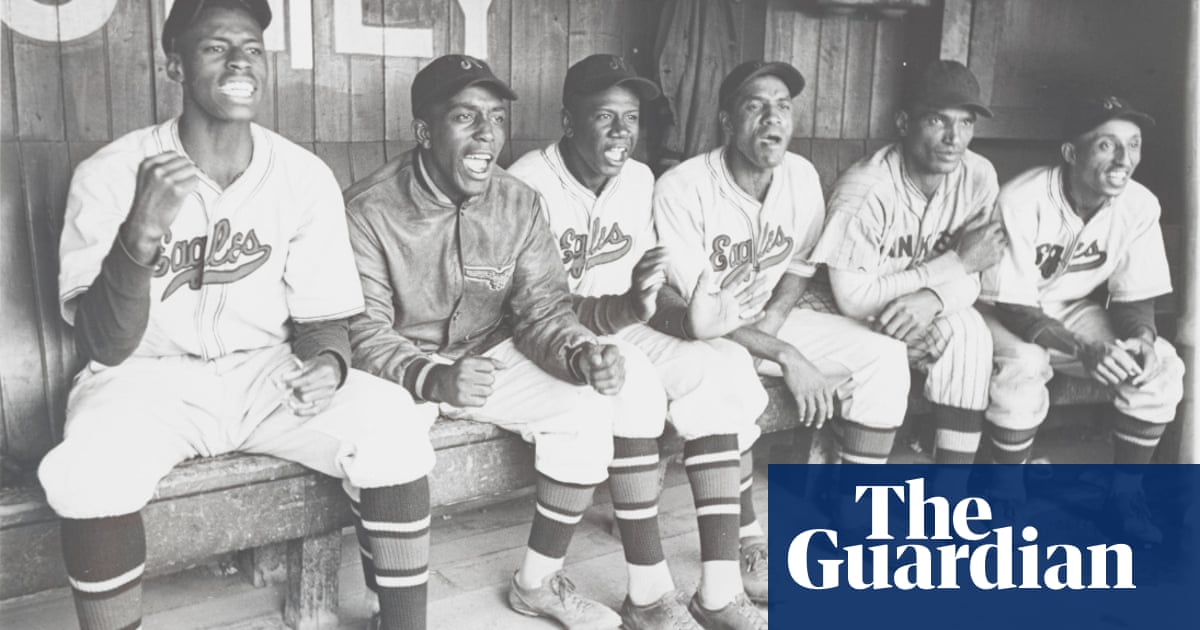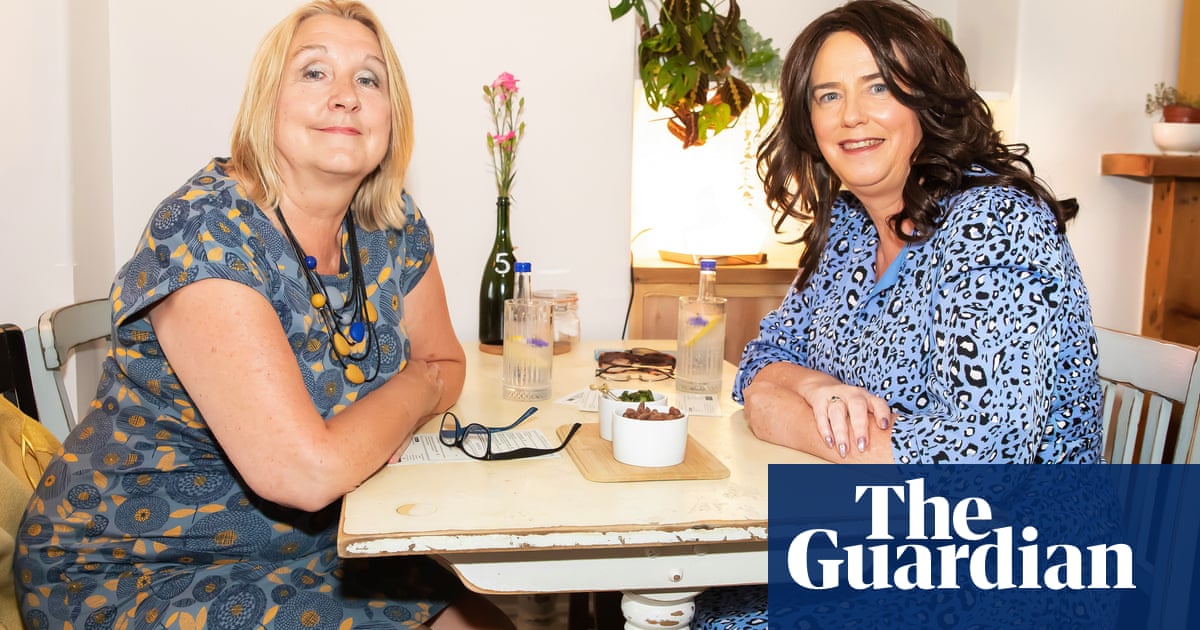
he film-maker Vanessa Engle calls it “vagina snap”: female-centred fluff that meets diversity targets, but is not the sort of documentary commissioners boast about, and certainly is not about to enter for awards submissions. “You’ve got a vagina,” says Engle, explaining the concept, “the subject of the film has got a vagina, so this must be a film for you to make.
“Don’t get me wrong. I’m passionate about the subject of women. I’ve made many, many films about women that I’ve pitched myself. But it’s only in the last couple of years that indies have started ringing me up and saying, ‘We’ve got a film about women that needs a women director’, or – I’ve literally had people saying this to me – ‘We need a woman director, because it looks bad for us that we don’t have any!’”
We are talking ahead of the release of her forthcoming BBC Two documentary about Carl Beech, the fantasist convicted in July 2019 of fraud, perverting the course of justice, and child sex offences, and sentenced to 18 years in prison. But the topic of female representation in the industry is on Engle’s mind – possibly because she has just found out that her 2019 film The $50 Million Art Swindle has been nominated for a Grierson award, the highest accolade in documentary film-making. This will be her eighth nomination, and yet Engle, who is 57, has never won a Grierson, or a Bafta for that matter. “I will let you be the judge of whether it is right to be up for it eight times and never win it,” Engle observes.
The Unbelievable Story of Carl Beech looks at the life of the man whose false allegations of a Westminster paedophile ring were broken by the now-defunct investigative news site Exaro in 2014. Beech alleged that politicians including the Conservative MP Harvey Proctor and the former home secretary Leon Brittan, as well as the former head of the British armed forces Lord Bramall, and Beech’s stepfather, Raymond Beech, had sexually abused him as a child.
Operation Midland was launched by the Metropolitan Police in 2014, after detectives deemed Beech to be a credible accuser. It was a disaster, costing £2.5m without making a single arrest. Brittan died under suspicion in 2015, before his name could be cleared. Proctor has said that the allegations caused him to lose his job and his home, and resulted in a “major depressive illness”.
When BBC Two approached Engle to make the film, she debated whether to say yes, fearful that publicising Beech’s lies more widely would cause people to feel sceptical when future survivors come forward with allegations of abuse. “I didn’t want to tell the story of a liar at the expense of genuine victims of child sexual abuse,” she explains. But she decided to go for it, first, to show the damage Beech had done to legitimate victim-survivors who might now struggle to have their stories taken seriously.
And second, she says, because the Beech story felt like a necessary one to tell, in our age of social-media-driven social justice movements, which can amplify allegations against public figures at warp speed, before they can be properly investigated by the authorities. Just last month, the Canadian singer Justin Bieber made global headlines after two Twitter users claimed he sexually assaulted them in 2014 and 2015. In one of the nights in question, Bieber did not stay at the hotel where his accuser claimed he assaulted her. Bieber is now suing both women for defamation. “It is open season for anyone to make a claim, no matter how vile, unsupported and provably false, about anyone without consequence,” Bieber’s lawsuit reads.
The Beech story is an extreme example of what happens when abuse allegations are taken at face value by the police and the press, and how that uncritical acceptance can destroy lives. “It’s a cautionary tale about the consequences of what happens when a wave of new social awareness comes along, and it can sort of blindside us, so that we are either unable or maybe even frightened to deal with things fairly or objectively,” Engle says. Part of the reason that police were keen to be taking Beech at his word was because his allegations came shortly after the Jimmy Savile revelations, where horrifying incidents of rape and abuse had been ignored by police for decades. “Post Savile, post #MeToo, post Black Lives Matter, it feels very relevant now,” she says.
Perhaps the most moving scene in the documentary comes when Engle interviews the wife and daughter of Raymond Beech, Carl’s former stepfather. Beech’s daughter won’t show her face on camera, even after her father’s name has been cleared. “Mud sticks,” she explains. A whey-faced Proctor is seen in the film saying a similar thing at a press conference shortly after Beech’s allegations became public. “I am not a paedophile,” he insists, as cameras flash. “Even when you disprove it,” says Engle, of the allegations, “people say: ‘Oh there’s no smoke without fire.’ Even now, people say that about this story. And you think: ‘Oh my God, how do you ever wash all this mud away? It really sticks to you.’”
Why did Beech do it? The film suggests several motives: attention, money (he received a compensation payout for the abuse, which he spent on a Ford Mustang.) “He had fantasies of wanting to be rich,” says Engle, explaining that Beech, a nurse-manager in the NHS, put his son down for private school even though hewould never have been able to afford the fees. “I think that was what might have got him started with the compensation claim. He was also an attention-seeker.” A more sinister motivation is suggested queasily in the documentary, but never made explicit.
This is Engle’s 60th film, or thereabouts, in her 32-year career as a director-producer – she has lost count. She started out making arts documentaries for the BBC, before branching into documentaries on a dizzying array of topics: leftwing activists, Jewish people, people who have cosmetic surgery, women’s libbers and – possibly her most-beloved film – dogs and their owners. Is there a connecting theme in her work? “Yes,” says Engle swiftly. “Belief systems is how I put it most simply. What our values and belief systems are … that’s what I think underlies it. That’s the theme I think I always return to.”
Her 2015 film Love You to Death: a Year of Domestic Violence chronicled the women killed by partners or ex-partners in one year. Has Engle been thinking of the women trapped at home with abusive partners during lockdown? She groans. “I’ve been really thinking about it, yes,” she says. “I’ve been thinking about it lots … it’s horrendous, what’s been going on in lockdown. The idea that when women are locked down with their male partners, that results in an explosion of violence – the amount of wretchedness and unhappiness, and the amount of dysfunction that reveals about the relationship between men and women is really alarming, and very upsetting.”
Engle’s interview style is famously direct, whether it is asking a women’s libber whether she ever dabbled in lesbianism in the 70s, or persuading an ex-con to swallow a whole gherkin on camera to demonstrate how he trafficked drugs across international borders. So I ask her a question I think she would approve of: does she feel she would be better known if she were a man? Although Engle is respected in the industry, she doesn’t have name recognition among the general public. “My kids are in their early 20s now,” says Engle. “For 20 years, I did my job and raced home to cook their tea or bath them or put them to bed. And I do think that makes you quite invisible when everyone else is going to screenings or drinks or industry events. As a woman, you are much less visible.”
The Unbelievable Story of Carl Beech airs on 24 August at 9pm on BBC Two












